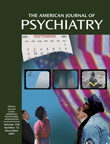Spectacular Happiness
This is the audacious first novel from the author of Listening to Prozac(1), Should You Leave?(2), and Moments of Engagement(3). This rich and wonderful book defies distillation. Somehow Kramer successfully weaves together a poignant family saga with anarchist theory, suspenseful intrigue with social criticism, dark cynicism with hope for humanity. Reading this book (like so many things) will not be the same after the terrorist attacks of September 11, 2001. The story centers on a divorced community college professor involved in anarchist bombings of beach-front mansions on Cape Cod. Although the bombings are scrupulously orchestrated to avoid direct injury to people, Kramer’s sympathetic portrayal of any type of terrorism may be troubling for some readers. Yet the provocative aspects of this book are in some ways prescient and, perhaps, especially relevant to a nation engaged in a war against terrorism.
The novel takes the form of a journal written by Chip Samuels, the divorced professor who deeply misses his son after the breakup of his family. Kramer’s introspective narrative voice draws the reader into the psyche of the protagonist. Samuels is a sharply intelligent man whose personal wounds and principled views lead him on an increasingly high-stakes odyssey. Samuels addresses the journal to his son in an effort to explain himself and somehow bridge the distance between them.
On this poignant framework, Kramer builds a lively tale of an anarchist movement that targets ostentatious beach-front structures while fastidiously avoiding harm to people. The Free the Beaches campaign becomes a sort of terrorist performance art that challenges modern American capitalist values. Kramer’s social criticism cuts deeply and widely, and he does not spare psychiatry. He questions our current readiness to medicate our children and ourselves, and he challenges conceptions of psychotherapy. Ultimately, he leads the reader to question his or her own principles and relationship with the prevailing culture.
This review cannot do justice to the breadth of issues Kramer explores. Most immediately, the novel charts a man’s struggle to maintain integrity and keep his family together in the turbulent seas of the modern world, seas that can erode our foundations and threaten us with riptides and rogue waves of fate. Kramer resists simple formulas regarding motivation or how one might influence the course of events. Contradictions, unintended consequences, and ironies abound—the stuff of good fiction and interesting life.
Kramer’s indictment of modern society is indeed penetrating, but ultimately he writes of people saving one another. He has written a subversive and triumphant work that asks us to do all we can for one another. The attacks of September 11 may complicate the feelings aroused by this book, but by all means read it and enjoy Peter Kramer’s deeply thoughtful fiction.
1. Kramer PD: Listening to Prozac: A Psychiatrist Explores Antidepressant Drugs and the Remaking of the Self. New York, Viking-Penguin, 1993Google Scholar
2. Kramer PD: Should You Leave? New York, Scribner, 1997Google Scholar
3. Kramer PD: Moments of Engagement: Intimate Psychotherapy in a Technological Age. New York, WW Norton, 1989Google Scholar



